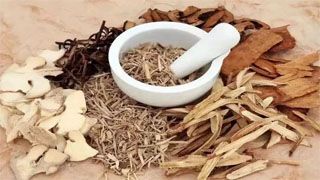
Here are some commonly used traditional Chinese medicine herbs for regulating the gastrointestinal tract:
1、 Atractylodes macrocephala
1. Nature and taste are regulated by the meridian: bitter and sweet in taste, warm in nature. Returning to the spleen and stomach meridian.
2. Effect: invigorate the spleen and qi, dry dampness and promote diuresis, stop sweating, and stabilize pregnancy. It can effectively improve symptoms such as diarrhea, bloating, and fatigue caused by spleen and stomach weakness. It also has a good therapeutic effect on diarrhea and edema caused by spleen deficiency and dampness.
3. Application examples: It is often combined with Codonopsis pilosula, Poria cocos, etc. to form prescriptions such as Sijunzi Tang and Shenling Baizhu San, which are used to regulate gastrointestinal function.
2、 Poria cocos
1. Sexual taste is regulated by the meridian: sweet and light in taste, and flat in nature. Heart, lung, spleen, and kidney meridians.
2. Effect: Relieve water and dampness, invigorate the spleen, and calm the heart. It can promote the circulation of water and dampness in the spleen and stomach, and has good therapeutic effects on poor appetite, diarrhea, edema, etc. caused by spleen and stomach weakness accompanied by dampness obstruction.
3. Application example: In the formula for regulating the gastrointestinal tract, it is often used in combination with Atractylodes macrocephala, yam, etc. For example, Poria cocos is included in Bazhen cake, which plays a role in strengthening the spleen and dispelling dampness.
3、 Yam
1. The taste is regulated by the meridian: sweet in taste and flat in nature. Return to the spleen, lung, and kidney meridians.
2. Effect: Nourish the spleen and stomach, generate fluids and benefit the lungs, nourish the kidneys and astringent essence. It can not only nourish the spleen and stomach, but also benefit the spleen yin, making it a good medicine for calming and tonifying the spleen and stomach. It has a good improvement effect on spleen and stomach weakness, eating less and having loose stools, and persistent diarrhea.
3. Application examples: It can be consumed alone, such as steamed yam, or used in prescriptions, such as Liuwei Dihuang Wan, which uses yam to nourish the spleen and kidneys.
4、 Codonopsis pilosula
1. The taste is regulated by the meridian: sweet in taste and flat in nature. Returning to the spleen and lung meridian.
2. Effect: Nourish the spleen and lungs, nourish blood and produce fluids. Can be used for spleen and lung qi deficiency, food deficiency and fatigue, cough deficiency and asthma, etc. Its function is gentle and it is a commonly used supplement for nourishing the middle and qi, which can enhance spleen and stomach function.
3. Application examples: In some formulas for regulating the spleen and stomach, such as Xiangsha Liujunzi Tang and Codonopsis pilosula, they are often used as one of the main drugs to enhance spleen and stomach function.
5、 Chenpi (dried tangerine peel)
1. Nature and taste are regulated by the meridian: bitter and spicy in taste, warm in nature. Return to the lung and spleen meridians.
2. Effect: Regulate Qi and invigorate the spleen, dry dampness and reduce phlegm. It has a good therapeutic effect on abdominal distension, loss of appetite, vomiting and diarrhea caused by spleen and stomach qi stagnation. Can promote gastrointestinal peristalsis and aid digestion.
3. Application examples: Often used in combination with Fructus Aurantii and Magnolia officinalis to enhance the function of promoting qi circulation and strengthening the spleen. In formulas such as Er Chen Tang, dried tangerine peel is also an important component.
6、 Sha Ren
1. Nature and taste are regulated by the meridian: pungent in taste and warm in nature. Return to the spleen, stomach, and kidney meridians.
2. Effect: Relieve dampness and stimulate appetite, warm the spleen and stop diarrhea, regulate qi and stabilize pregnancy. It has a good therapeutic effect on abdominal distension, loss of appetite, vomiting and diarrhea caused by spleen and stomach dampness obstruction and qi stagnation.
3. Application examples: Often used in combination with Magnolia officinalis, Chenpi, etc., to enhance the effects of dispelling dampness, promoting qi circulation, stimulating appetite, and strengthening the spleen.
7、 Chicken Inner Gold
1. The taste is regulated by the meridian: sweet in taste and flat in nature. Return to the spleen, stomach, small intestine, and bladder meridians.
2. Effect: Nourish the stomach and digest food, astringent essence, stop stagnation, and promote digestion. It has a good therapeutic effect on gastrointestinal problems such as indigestion and indigestion. Can promote gastrointestinal peristalsis and enhance digestive function.
3. Application example: Often used in combination with hawthorn, malt, etc. to form a formula for promoting stomach health and digestion.


